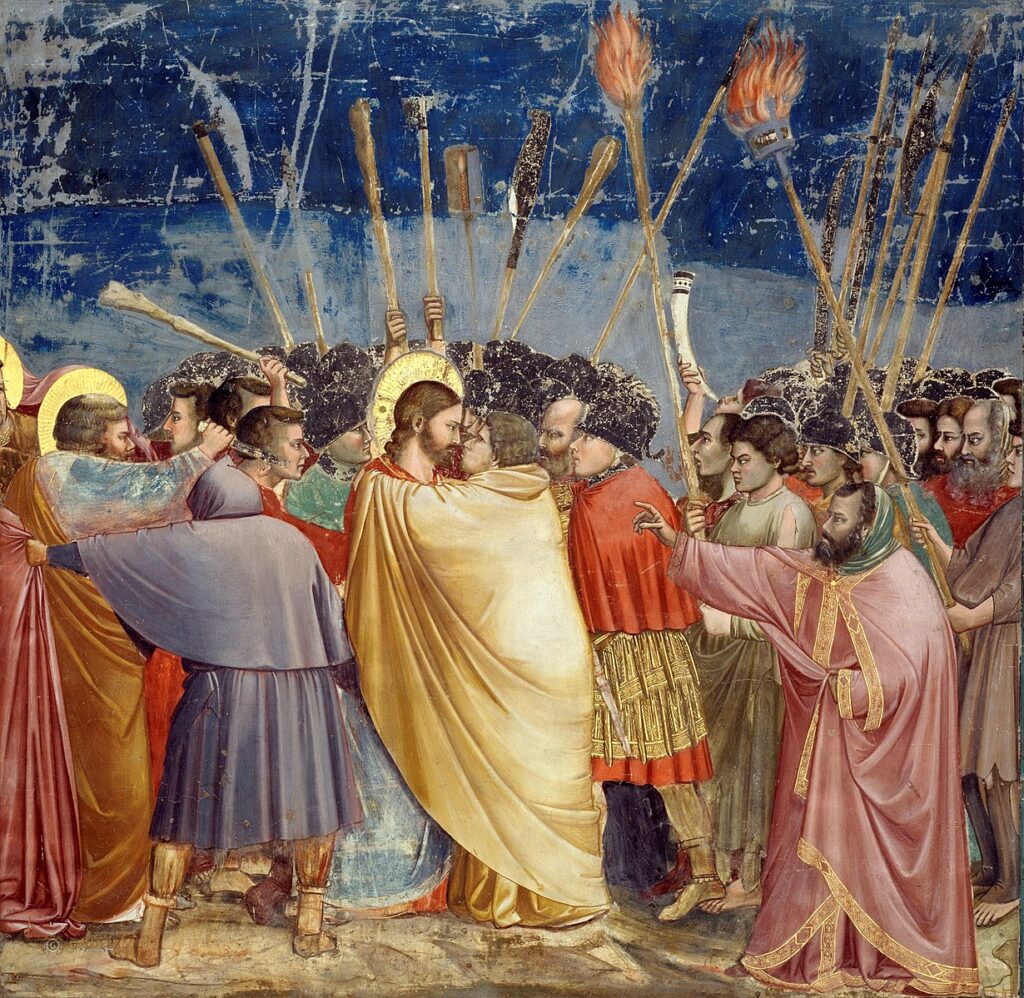Judas Iscariot is infamously known as being the guy who ratted out Jesus and sent him to his death on the cross. He’s so well-known that even people who know nothing about the biblical story still know that anyone who’s a traitor can be called a “Judas.”
But if Judas is so notorious, then why don’t we know how he died?
Jesus’ death is retold multiple times throughout the New Testament. Even the other apostles are described in their final moments. But Judas? Why does his death continue to be such a mystery?

Who Was Judas Iscariot?
Before talking about how Judas died, it may be useful to revisit what he did while he was alive, and why he ultimately betrayed Jesus.
Judas was known as the 12th apostle. Judas also acted as the treasurer for the disciples since he was in charge of the money box that held offerings. Before handing Jesus over to the Romans, Judas had by all accounts been a faithful disciple just like the other eleven.
So why did he betray Jesus?
According to some scholars, he was part of a radical sect of Jews known as the Zealots. These Zealots hated the idea of being ruled by Rome and vehemently resisted anyone who accepted Roman rule.
One theory is that due to Judas’ radical views towards the Romans, he could not stand the fact that Jesus was unwilling to take up arms against Rome. When Jesus’ position became clear to him, Judas decided to turn him over.
Another theory is that Judas was not a historical figure, but rather, a symbol for all of those Jews who didn’t believe in Jesus. Either way, it is during the Last Supper that Judas undergoes a change that will ultimately lead him to betray the man he followed for so long.
Judas’ Betrayal of Jesus
The Bible includes several different versions of the last supper. The version in Mark describes the scene as follows:
When evening came, Jesus arrived with the Twelve. While they were reclining at the table eating, he said, “Truly I tell you, one of you will betray me—one who is eating with me.” They were saddened, and one by one they said to him, “Surely you don’t mean me?” “It is one of the Twelve,” he replied, “one who dips bread into the bowl with me. The Son of Man will go just as it is written about him. But woe to that man who betrays the Son of Man! It would be better for him if he had not been born.”
(Mark 14:17-21).
In this version, neither Judas nor the other disciples realize that he is the one who’s going to betray Jesus. But in the gospel of John, the scene plays out slightly differently.
In John’s version, the disciple sitting closest to Jesus leans in and asks him which of the disciples will betray him. Jesus responds by saying, “It is the one to whom I will give this piece of bread when I have dipped it in the dish.”
He then dips the piece of bread and hands it to Judas. Jesus then instructs him, “What you are about to do, do quickly.” Judas then leaves.
Whether Jesus points out Judas specifically or not during the Last Supper, the outcome is the same. When Jesus is praying with the disciples in the Garden of Gethsemane, a group of Roman soldiers and priests arrive and surround them.
To surreptitiously indicate to the Romans which among them is Jesus, they’ve worked out a signal – a kiss. Judas goes up to Jesus and greets him with a kiss, whereupon the soldiers descend upon him and take him away.
The Two Versions of Judas’ Death
As mentioned, what happens to Judas after Jesus’ crucifixion remains a mystery. And that’s due to the two conflicting accounts of how he died.
In Matthew 3:3-10, Judas feels remorse for what he did. He tries to return the 30 silver coins that the Romans paid for his betrayal but the Romans refuse it.
After pleading with them to take it, he throws the money on the ground and then goes off and hangs himself. The chief priests then use Judas’ money to create a potter’s field where foreigners are to be buried.
So Judas threw the money into the temple and left. Then he went away and hanged himself.
(Matthew 3:8)
In Acts 1:18, Judas’ fate is much different. Rather than take his own life, he keeps his silver and uses it to buy himself a field. One day, while he’s walking through his field he falls head first to the ground (or throws himself down), and his intestines swell and burst open, killing him.
With the payment he received for his wickedness, Judas bought a field; there he fell headlong, his body burst open and all his intestines spilled out.
(Acts 1:18)
So, which is the real version?
Ultimately, that question will probably never be settled. Considering how long biblical scholars have debated the true nature of Judas’ death, the truth is we may never know.
Some will claim that he felt remorse and took his own life. Others will say he greedily kept the money and died of some kind of abdominal swelling. Some people even argue that the two verses are describing the same event from two different perspectives.
In any case, there is one thing that we know for certain – Judas will always remain the guy who handed over Jesus. No matter how he died, he’ll always be the traitor. A Judas.

